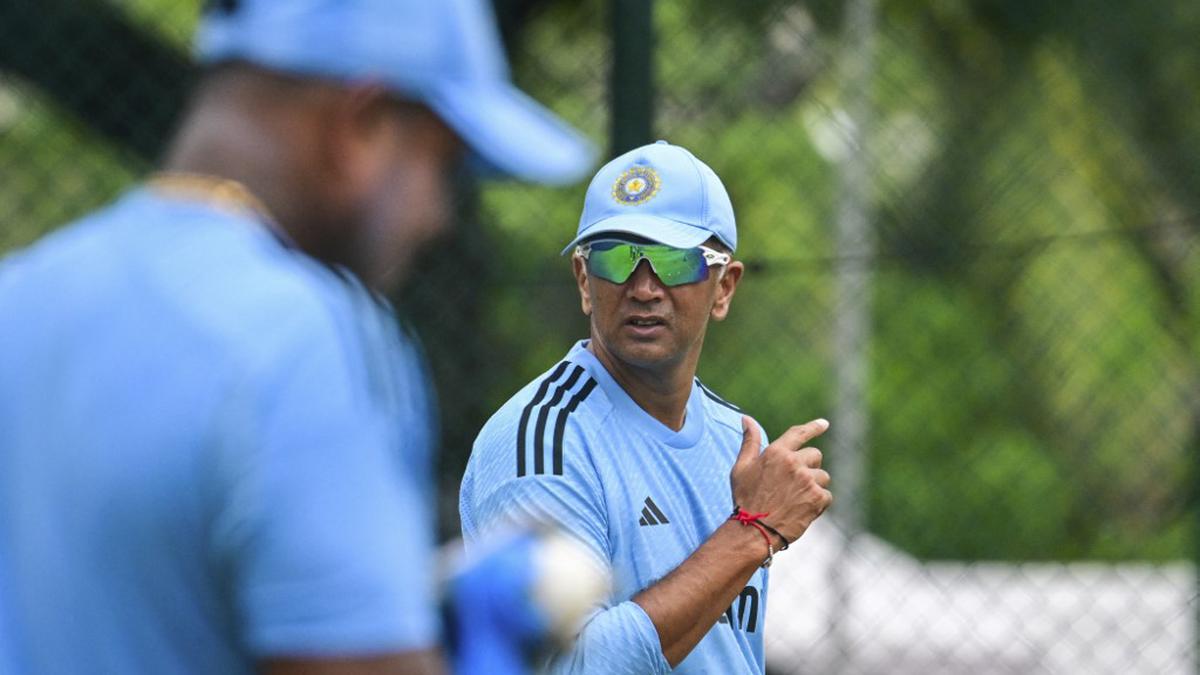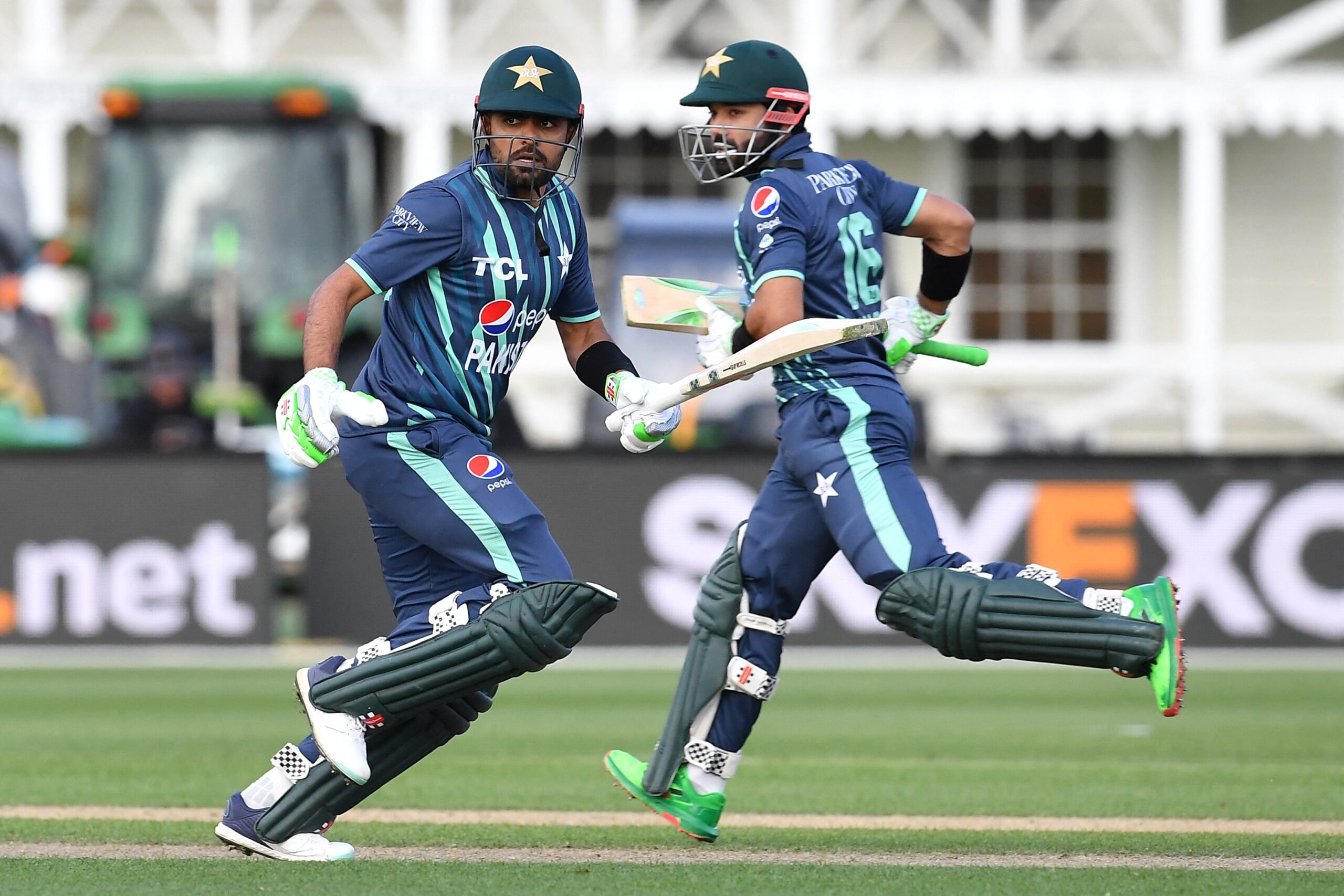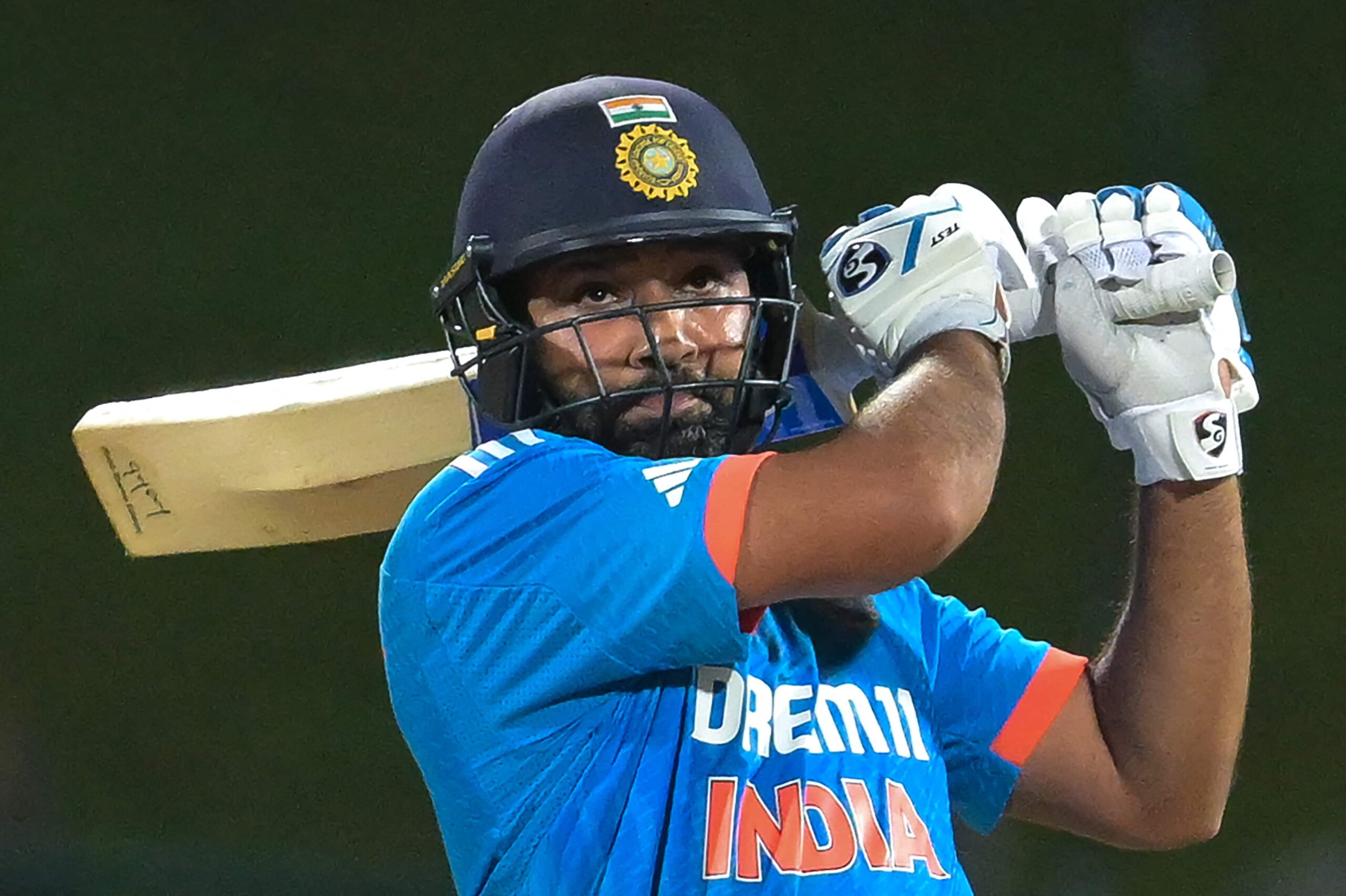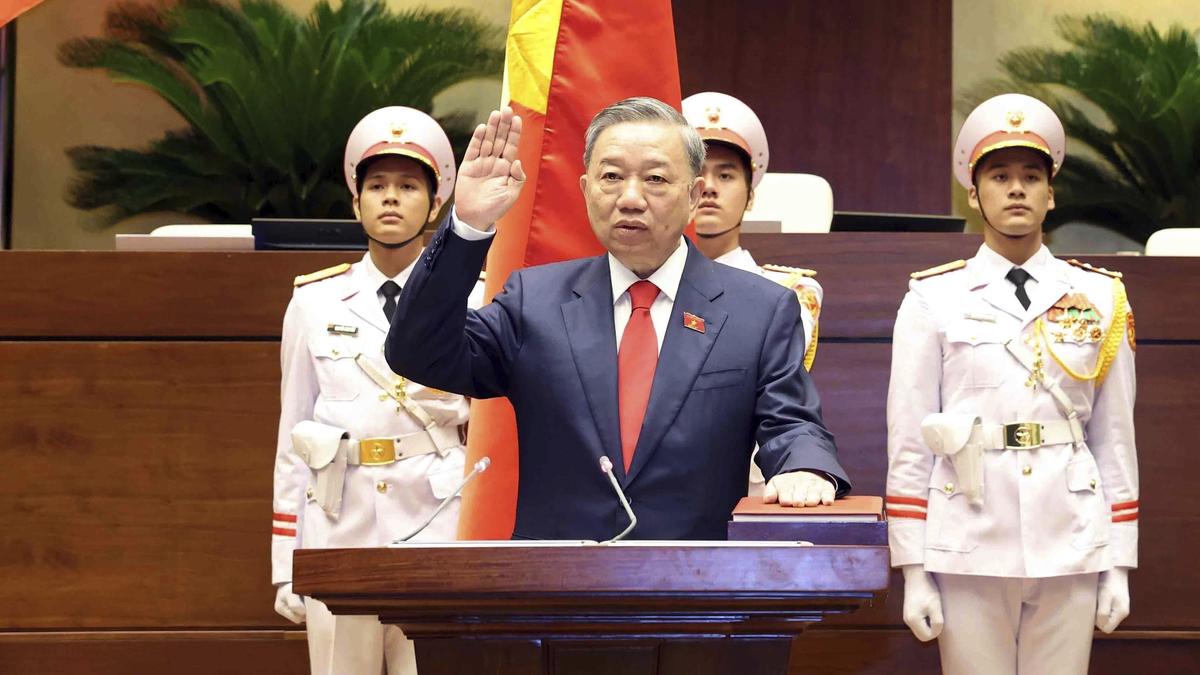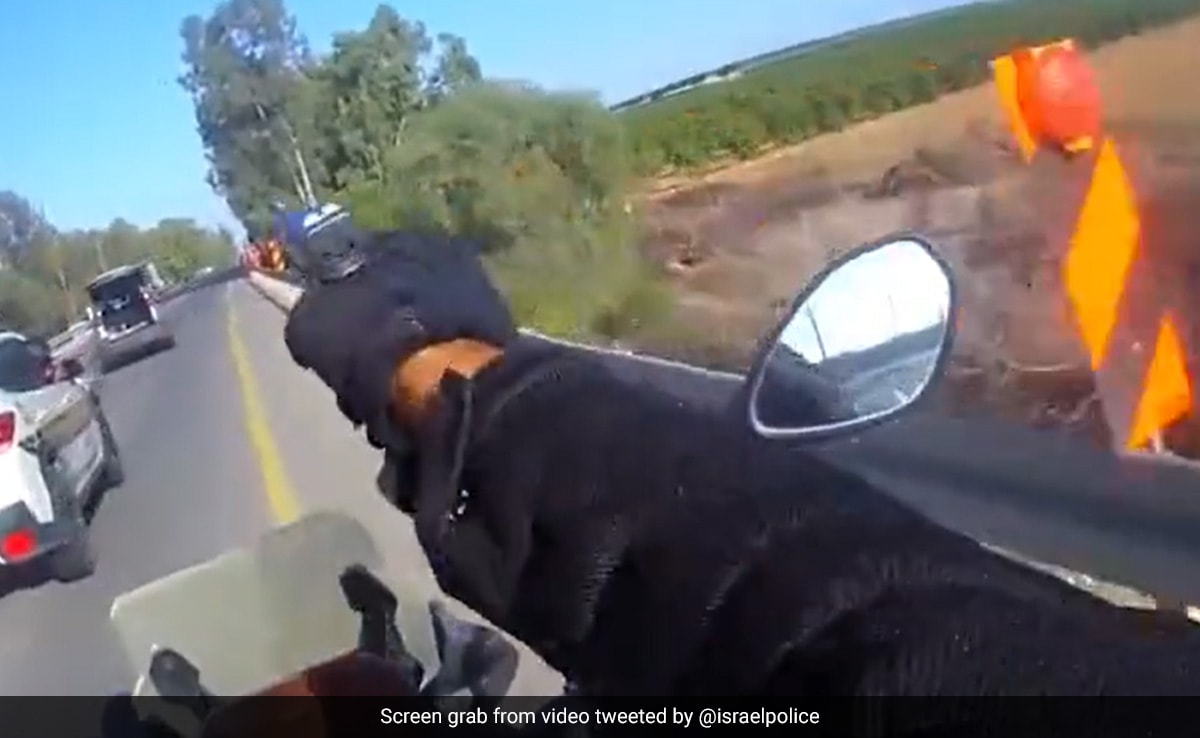Israeli Prime Minister Benjamin Netanyahu, right, welcomes French President Emmanuel Macron before their talks in Jerusalem, on October 24, 2023.
| Photo Credit: AP
French President Emmanuel Macron vowed on October 24 not to leave Israel isolated in its fight against Islamist militants, but warned against the risks of a regional conflict as he arrived in Israel.
After meeting with families of French victims at Tel Aviv airport, Mr. Macron told President Isaac Herzog in Jerusalem that France stood “shoulder to shoulder” with Israel and that the first objective should be to free hostages in Gaza.
Israel-Hamas war, Day 18 updates
“I want you to be sure that you’re not left alone in this war against terrorism,” Mr. Macron said. “It is our duty to fight against terrorism, without any confusion and without enlarging this conflict.”
Beyond showing solidarity with Israel, Mr. Macron wanted to make “proposals that are as operational as possible” to prevent an escalation, to free hostages, and guarantee Israel’s security and work towards a two-state solution, presidential advisers said. He will push for a humanitarian truce, they added.
Mr. Macron’s visit comes after European Union foreign ministers on Monday struggled to agree on a call for a “humanitarian pause” in the war between Israel and Palestinian militant group Hamas to allow much more aid to reach civilians.
Mr. Macron was also due to meet Israeli Prime Minister Benjamin Netanyahu and centrist opposition leaders Benny Gantz and Yair Lapid, the Elysee said.
Mahmoud Abbas’s office said Mr. Macron would meet with the Palestinian leader in Ramallah, West Bank.
However, Mr. Macron’s ability to influence events in the region appears limited by what some analysts say is a shift towards a more pro-Israel Anglo-American line, in contrast with the traditionally distinctive and more pro-Arab French Gaullist approach.
“France’s soft power south of the Mediterranean has considerably faded,” said Karim Emile Bitar, a Beirut-based foreign policy expert at French think tank IRIS.
“We’re under the impression that nothing distinguishes France from other Western countries now,” he said.
The French government’s decision to adopt a blanket ban on pro-Palestinian protests, before it was struck down by courts, is one reason Macron has lost credit in the Arab world, he said.
French officials contest the idea that Macron’s policy is biased. They say Mr. Macron has constantly reaffirmed the rights of Palestinians and the position of a two-state solution. “It’s a goal France has never veered from,” the adviser said.
Thirty French citizens were killed on Oct. 7 and nine are still missing. One appeared in a video released by Hamas, but the fate of the others remains unknown.
Macron has vowed that France would “not abandon any of its children” in Gaza and has expressed hope that Qatar’s mediation can help free hostages.
Mr. Macron’s visit will also have a special resonance at home, where France’s large Muslim and Jewish communities are on tenterhooks following the killing of a teacher by an Islamist militant that French officials have linked to the events in Gaza.
The French leader will have to tread a fine line during his tour of the region, the Israeli-Palestinian conflict having often stoked tension back home and France’s fractious opposition being ready to pounce on any faux pas.

